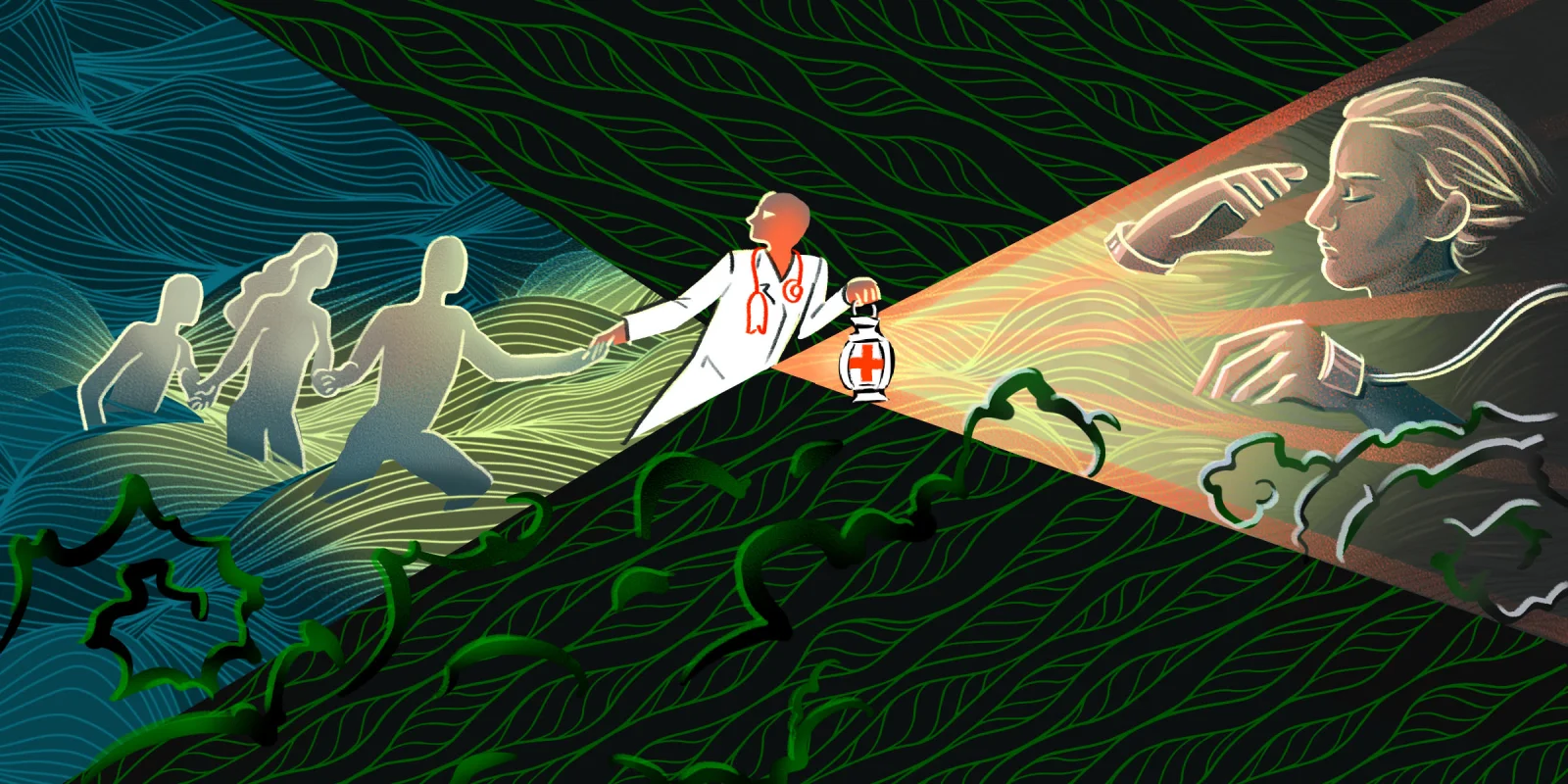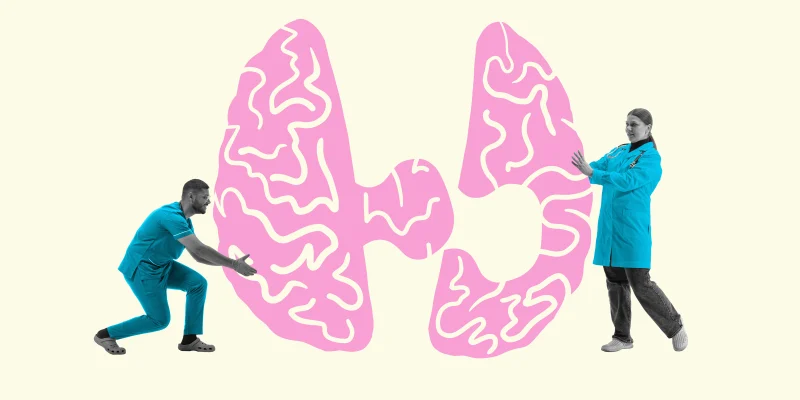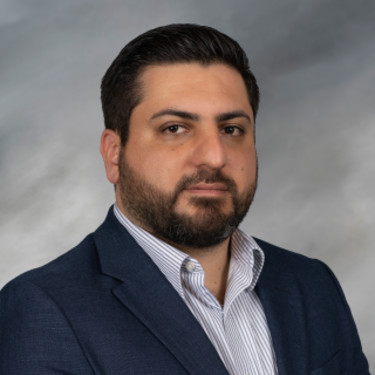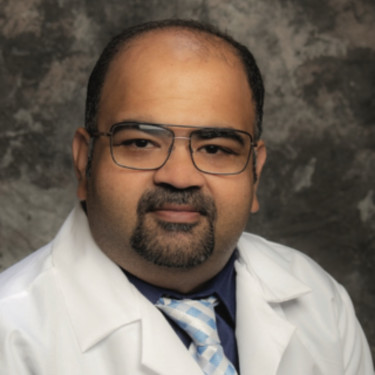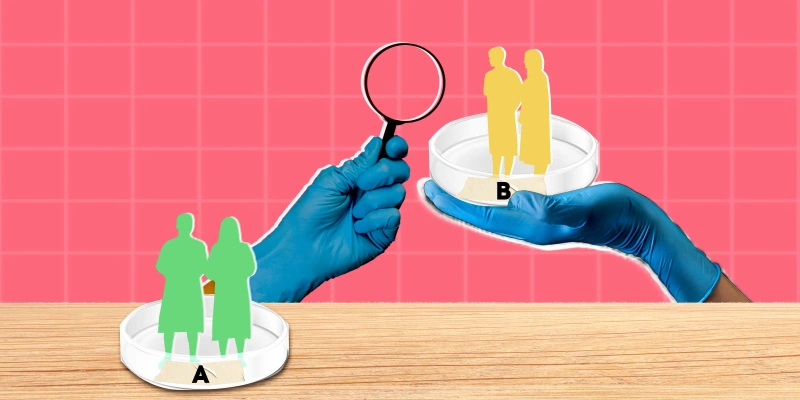Minutes after our patient was moved up to the floor, we got a call that her nurses wanted to call a respiratory therapist. “Mrs. Nancy” was an elderly woman with a complicated past medical history presenting with shortness of breath and altered mental status. She was in clear respiratory distress, almost arching her back and lifting it off the bed with each breath (and it was a lot of breaths at nearly 40 breaths a minute, and with an oxygen saturation around 80% despite high-flow nasal cannula).
After our attending physician conducted a quick exam to confirm the patient was only responding to pain, he told the resident, “Contact her family. We need to have a goals of care discussion right now.”
We then finished rounding as we waited for her family to come. By the time we went back to her room, the patient’s two daughters and her 20-year-old grandson were waiting outside her room. The grandson was visibly nervous.
With immense compassion in his voice, the attending addressed the family: “It’s a pleasure meeting you all and I wish it were under better circumstances, but your mother and grandmother is very ill right now. We’re helping her breathe but she seems very uncomfortable. Lab results are showing that multiple organs are failing — her heart, her liver, her kidneys, her lungs … we’re trying to help with the infection we think she has, but I don’t think there’s a good long-term prognosis.”
The elder daughter simply nodded and said firmly, “Doctor, we love this hospital, my mom loves this hospital, and we trust you and your team to take care of her well. My mother made it clear in her living will that she did not want to suffer and did not want anything prolonging her life … and because of that, I have peace when I tell you to make sure she doesn’t suffer and help her pass peacefully.” She paused before continuing, “It almost feels fated … did you know, today is the day our father died a few years ago — they were together more than 60 years.”
The attending gave a small nod. Then he said, “Would you like to see her?”
The three family members followed him in, her grandson hesitating a beat behind her two daughters.
“Mrs. Nancy, your family is here to see you,” the attending said, while gently placing a hand on her shoulder. She had no response and continued breathing rapidly, arching her back again, with her eyes closed.
“Can she hear us? Is she aware?” Her younger daughter asked.
“Well, there’s no reason to say she can’t,” the attending replied. He then noticed the grandson was maintaining his distance, staying in the corner.
The attending beckoned to him. “What’s your name?”
“Timothy.”
The attending reached out to him and said, “Thank you for coming here today, Timothy. I know this must be incredibly sad and even frightening, to see someone you love and grew up with in a state like this. And I know the helplessness you may be feeling, as if there isn’t anything you can do to help the person you care so much about. But, you know, there is something you can do. In this time of your grandmother’s need, you can be there for her like she’s been there for you. You can surround her with the love and support that you clearly have for her and that she clearly surrounded you with. In her time of need, in her time being here with all these strangers, you’ll know that you were there for her, and you held her hand and you told her you loved her and how much she means to you. She may not realize it, but what if she does? And you and only you can provide her with that. Not me, not any of the nurses or other doctors here, only you can do that.” The attending offered him the chair next to his grandmother.
With that, Timothy approached her and gently reached out for her hand. “Do I … just talk to her?”
“Yes, just talk to her, tell her how loved she is and that you’re here for her.” Then the attending faced our patient and said to her, “Mrs. Nancy, Timothy is here.”
“TIMOTHY?!” Our patient exclaimed as she opened her eyes and looked around with a ferocity, finally resting them on her grandson before closing them again. I am certain my gasp was but one of a chorus of others.
“Yes, Grandma? I’m here.” Timothy said, tears in his eyes, voice breaking.
“See?! That was incredible! She hasn’t said a word all day and the first and only word out of her mouth is your name! See how much you mean to her, too?” The attending said encouragingly. “We’ll step out and give you all some time with her.”
We left the room and gave the family some privacy. But all of us were still in shock over what we had witnessed.
“How did you know what to say?” I asked the attending.
“Well, I had no idea that would happen, but our patients always surprise us. Whenever I do a goals of care discussion, I try to think about not just the patient but also the family’s needs. And some families need a pull back to refocus on the patient while others need a push to act. For them, you can see the family is remarkably close-knit and wanted to be here for her, but you could also see that Timothy was nervous. So, I just tried to encourage him and give him that push, for both his benefit and the patient’s. And no matter what happens to her in the next few hours or days, he will always know that he was there for his grandmother when she needed him.”
“Timothy” was our patient’s last word, as she passed away the next day, surrounded by her family at her side.
Have you ever offered advice that was surprisingly effective? Share your experiences in the comments below!
Noor Shaik is an MD/PhD student at Sidney Kimmel Medical College at Thomas Jefferson University.
Names and identifying details have been modified to protect patient privacy.
Illustration by April Brust
